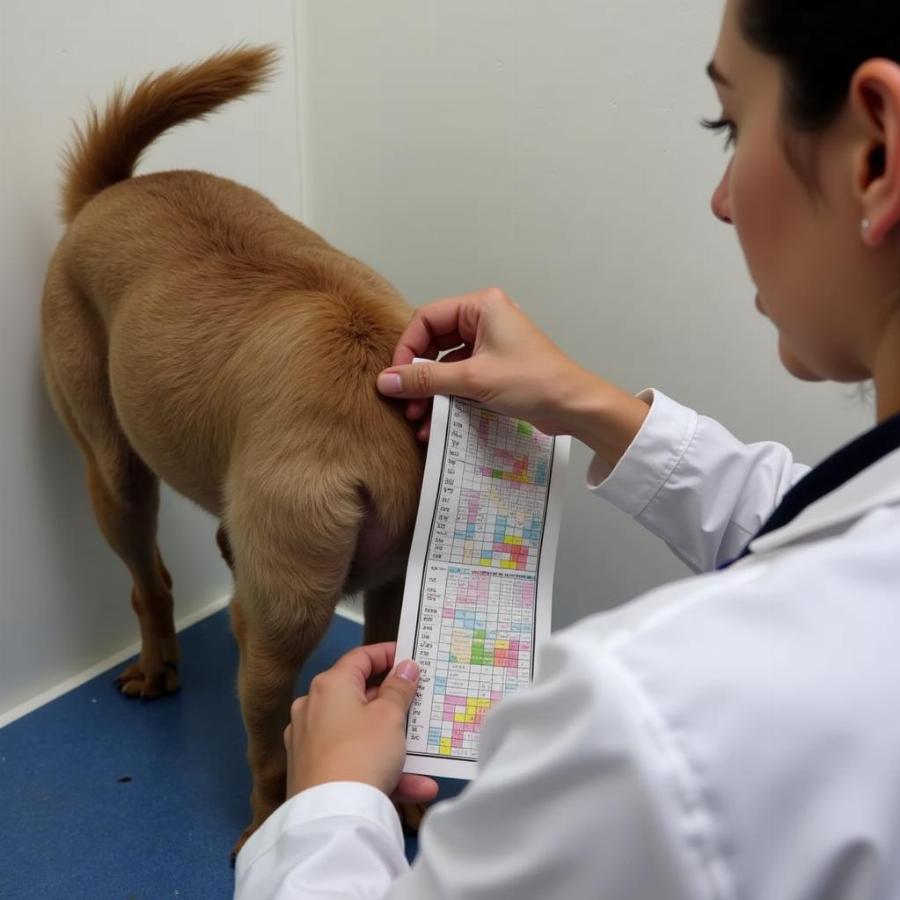Fat dog Mendoza isn’t a breed, but a potential situation for any dog living in Mendoza, or anywhere else for that matter. If you’re searching for this term, you’re likely concerned about your dog’s weight. And you should be! Just like in humans, obesity in dogs can lead to a cascade of health problems, impacting their quality of life and potentially shortening their lifespan. This article will delve into the causes, consequences, and solutions for canine obesity, providing you with the knowledge and tools to help your furry friend achieve a healthy weight.
Maintaining a healthy weight for your dog is crucial for their overall well-being. Obesity can lead to serious health issues such as diabetes, heart disease, joint problems, and even certain types of cancer. Understanding the factors contributing to weight gain and implementing appropriate strategies for weight management are essential for responsible dog ownership. This involves providing a balanced diet, ensuring regular exercise, and addressing any underlying medical conditions that may be contributing to weight gain. In Mendoza, just like anywhere else, access to nutritious dog food and opportunities for physical activity are key to preventing canine obesity.
Identifying a Fat Dog: Is Your Mendoza Pup Overweight?
Determining if your dog is overweight isn’t always straightforward. Visual cues can be misleading depending on breed and fur length. While a noticeably rounded belly is a common sign, a more accurate assessment involves feeling your dog’s ribs. If you can’t easily feel them without pressing firmly, your dog is likely carrying excess weight. Consulting with a veterinarian in Mendoza is the best way to determine your dog’s ideal weight and body condition score.
 Checking a dog's weight in Mendoza
Checking a dog's weight in Mendoza
Causes of Canine Obesity in Mendoza (and Beyond)
Overfeeding is a primary culprit in canine obesity. Just like us, dogs enjoy tasty treats, but too many calories, regardless of the source, can lead to weight gain. Lack of exercise also plays a significant role. In Mendoza, where outdoor activities are abundant, ensure your dog gets enough exercise to burn off excess energy and maintain a healthy weight. Certain medical conditions and medications can also contribute to weight gain, so regular veterinary checkups are crucial.
The Dangers of Obesity for Your Mendoza Dog
Carrying extra weight puts a strain on your dog’s body. Joint pain, difficulty breathing, and decreased stamina are just a few of the potential consequences. Obesity also increases the risk of developing serious health problems like diabetes, heart disease, and certain cancers. These conditions can significantly impact your dog’s quality of life and potentially shorten their lifespan.
Helping Your Fat Dog in Mendoza Slim Down
Creating a weight loss plan for your dog should always be done in consultation with a veterinarian in Mendoza. They can help determine the appropriate calorie intake and exercise regime for your dog’s specific needs. Switching to a high-quality, low-calorie dog food and reducing treats are essential steps. Increasing physical activity is also crucial. Regular walks, playtime in the park, and even swimming are great ways to help your dog shed those extra pounds.
Tailoring a Weight Loss Program for Your Dog in Mendoza
Mendoza’s climate and environment offer unique opportunities for exercise. Hiking in the Andes foothills or enjoying walks along the city’s tree-lined streets can provide excellent workouts for your dog. Remember to adjust the intensity and duration of exercise based on your dog’s breed, age, and overall health.
Conclusion: A Healthy Weight for a Happy Life in Mendoza
A fat dog in Mendoza, or anywhere, faces numerous health risks. By understanding the causes of canine obesity and taking proactive steps to address them, you can help your furry friend achieve and maintain a healthy weight. This translates to a longer, happier, and more active life for your beloved companion. Remember, a healthy weight is an investment in your dog’s overall well-being.
FAQ:
- How can I tell if my dog is overweight? Feel your dog’s ribs. If you can’t easily feel them without pressing firmly, your dog is likely overweight. Consult with your veterinarian for a professional assessment.
- What are the health risks associated with canine obesity? Obesity increases the risk of diabetes, heart disease, joint problems, and certain types of cancer.
- How can I help my dog lose weight? Consult with your veterinarian for a personalized weight loss plan, which will likely include a combination of dietary changes and increased exercise.
- What kind of exercise is suitable for an overweight dog? Start with low-impact activities like short walks and gradually increase the intensity and duration as your dog loses weight.
- What should I feed my overweight dog? Your veterinarian can recommend a high-quality, low-calorie dog food appropriate for your dog’s breed, age, and health status.
- How long will it take for my dog to lose weight? Weight loss should be gradual and steady. Consult with your vet for realistic expectations based on your dog’s individual circumstances.
- Are there any specific considerations for dogs in Mendoza? Mendoza’s climate and environment offer opportunities for outdoor exercise. Adjust the intensity and duration of activities according to your dog’s needs.